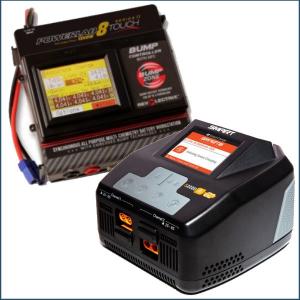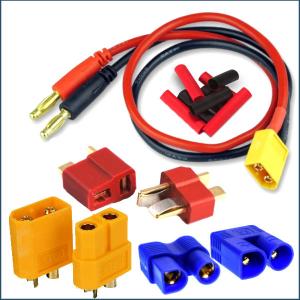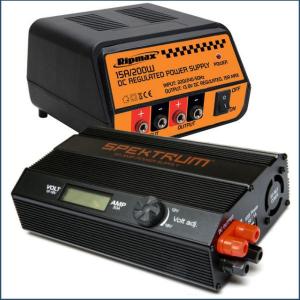Battery|Chargers
RC batteries and chargers are critical components of remote controlled (RC) vehicles. Here are some things to know about these products:
- RC Batteries: RC batteries are used to power the RC vehicle's electronic speed control, steering servo, and other components. These batteries come in different sizes, capacities, and chemistries, including nickel cadmium (NiCad), nickel-metal hydride (NiMH), and lithium polymer (LiPo).
- Capacity: Capacity of an RC battery is measured in milliampere hours (mAh). This determines how long the battery can power the RC vehicle. Higher capacity batteries can provide longer run times but may also be heavier and more expensive.
- Voltage: The voltage of an RC battery determines the speed and power of the RC vehicle. Higher voltage batteries can give greater speeds and more power, but they may also need more powerful electronics.
- RC Chargers: These chargers come two types, AC chargers and DC chargers. These chargers charge batteries at different rates and with different charging algorithms.
- Charging Rates: Charging rates refer to how quickly an RC charger can charge an RC battery. The charging rate is measured in amps, and it determines how long it takes to fully charge the battery. It is essential to use a charger that can charge the battery at the correct rate to avoid damaging the battery.
- Safety: RC batteries can be dangerous if not handled correctly. It is essential to follow the manufacturer instructions. Most RC chargers have safety features built in like overcharge protection, short-circuit protection, and thermal protection. Each of these features are to prevent damage to the battery and the charger.
Choosing the right RC battery and charger is essential for optimal performance and safety. With the right equipment and knowledge, you can enjoy longer run times and faster speeds with your RC vehicle.




